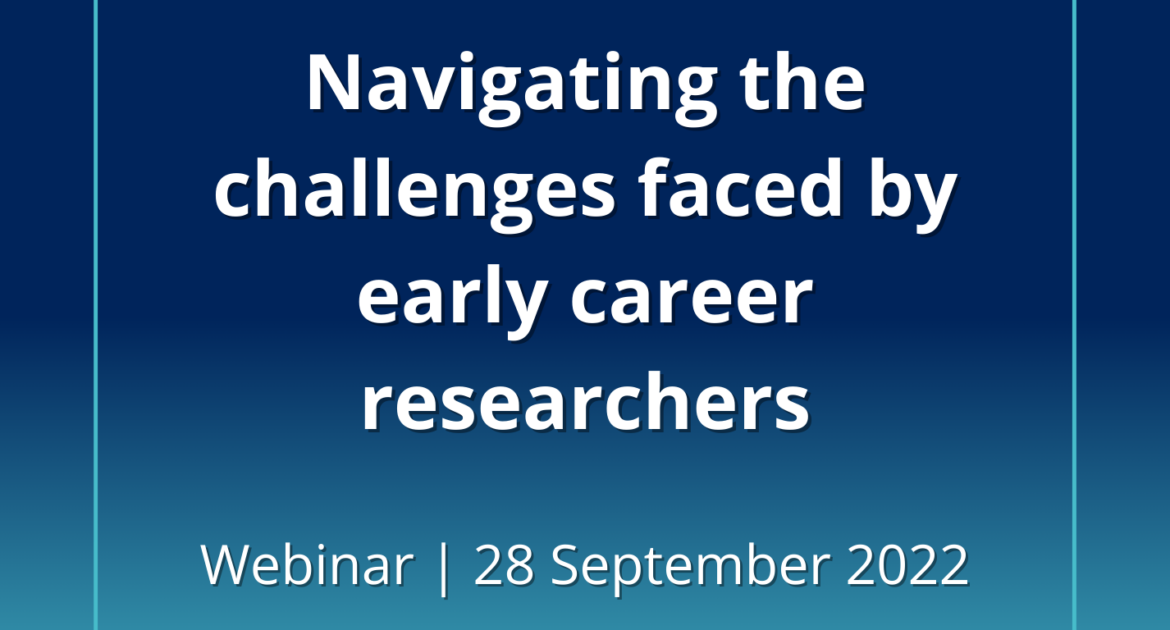Navigating the Challenges faced by Early Career Researchers
In support of National Inclusion Week 2022, on Wednesday 28th September jobs.ac.uk and The British Academy Early Career Research Network hosted a webinar, ‘Navigating the Challenges faced by Early Career Researchers’, to highlight a variety of issues ECRs face as they progress in their careers. Watch the video to see expert and founder of Vivomotion, Dr. Mhairi Towler, present strategies for circumventing the challenges as she explores the following topics:
1. Imposter syndrome
Dr. Mhiairi Towler explains that imposter syndrome is defined as “the persistent inability to believe that one’s success is deserved or has been legitimately achieved as a result of one’s own efforts or skills”. She talks about how using coping mechanisms such as: embracing your status, doing visualisation, talking to peers and developing a self-belief can help you to overcome imposter syndrome.
2. Building confidence
Have you turned down opportunities due to lack of confidence? Or maybe it’s impacting your career? There are multiple situations where confidence might affect you such as: committee meetings, attending interviews for funding, presenting and lecturing. To build confidence Dr. Mhairi Towler talks about the use of:
- Using the physical body (posture, tone and voice and breathing)
- Dealing with nerves (breathing exercises, medication, visualisation, The Tapping Solution app and journaling)
- Preparation (practising, technology considerations, knowing who your audience is, training, taking pen and paper)
3. Networking and events
There are many reasons to network: it can help build relationships within your organisation, provide you with invitations to speak at conferences, help in your change of career or job search and finding others to collaborate with. Overall, networking and attending events can provide you with new opportunities and Dr. Mhairi Towler outlines four steps for how to make your network work for you, strategies for building your network and how to engage with people at conferences and events.
4. Finding funding
Do you know what fellowships exist? What grants can you apply for? Where to start? Learn about the funding resources Dr. Mhairi Towler recommends to help you obtain funding and know where to go to apply for funding.
5. Time management
If you face issues when it comes to concentration and organisation, then watch the webinar video to discover tips on how you can prioritise your time and tasks. Dr. Mhairi Towler also explores time management strategies such as: how to avoid interruptions, learning to say no and delegation.
6. Burnout prevention
Feeling exhausted, demotivated, and numb are a few symptoms of burnout. It’s important to recognise the signs of burnout, the importance of mental health and where to go for help. If you are experiencing burnout then talk to your GP, reach out to other people and seek more mental health information.
View the full webinar recording to watch the summary of the main points or browse jobs.ac.uk’s career advice section to find more resources on managing your academic career and gaining tips for your PhD journey.





Leave a Reply